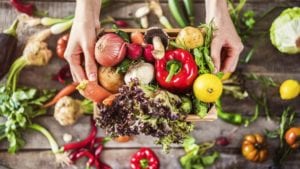Have you ever heard of the phrase, “You are what you eat?” There’s a lot of truth to this because the nutrients (or lack thereof) that we get from various foods causes our body to react in different ways. Foods that are good for us – which means they’re high in vital nutrients and minerals – are going to help us function at our best. Naturally, foods that are stripped of quality nutrients are going to make us feel bad both mentally and physically. If you think of your body as a machine – let’s say a car, for example – it’s much like the analogy of putting in the lowest quality of gas versus premium for a car that really needs it. When active addiction is taking up all of our energy, there’s little room for food control – and that’s why recovery is the best time to get back on track.
A 2017 review published in the Journal of Traditional Medicine & Clinical Naturopathy explains that food deprivation, unhealthy food choices and excessive weight gain are common outcomes of addiction. Substances like alcohol, however, make it more difficult for what nutrients we are getting to break down, which leads us to nutrient deficiencies. Gastrointestinal issues suppressed appetite and more clearly paint a less-than-healthy picture at the beginning of recovery, but we can turn that around by placing emphasis on our food choices now. Here’s what you should be eating (and avoiding) if you want to get your health in “tip-top” shape:
Foods to Eat:
- Foods high in tyrosine, which support a better mood: bananas, sunflower seeds, soybeans, lamb, pork, whole grains
- Foods with L-glutamine, which give antioxidant benefits: kale, spinach, parsley, brussels sprouts, celery, fish, chicken, eggs
- Foods high in antioxidants: blueberries, strawberries, onions, artichokes and pecans
- Foods that boost GABA levels (which relate to your mood): cherry tomatoes and shrimp
- Foods that influence serotonin levels, such as cheese, tuna fish, beans and lentils
Foods Not to Eat
- Additives and preservatives, often found in fast-foods
- Processed sugar
- White flour
- Caffeine
- Refined fats, found in chips, cookies, etc.
Avalon Malibu is a world-renowned, California state-licensed mental health and substance abuse recovery center. If you are ready to seek treatment to develop the tools you need to overcome life’s obstacles and be on the road towards happiness, health, and well-being, call us today at 888-958-7511 for a consultation. It’s never too late, and there are people here ready to help you.












